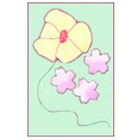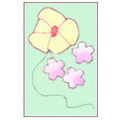I got my first real job when I was 16. I was a cashier at a family-owned Japanese grocery store in Little Tokyo—the Japantown of Los Angeles. Next to the fact that I wanted to earn money, for some reason I had a desire to challenge myself in becoming a responsible young adult by holding a part-time job while managing my studies and preparing for college. I wasn’t a golden goody-two-shoe student in high school but I did do my homework and showed up to work on time.
The way I got the job was, to say the least, unconventional. It happened on a Saturday morning. Determined to get a part-time job that day, I took the number 31 bus—a straight shot down East First Street from Boyle Heights through Little Tokyo and the rest of downtown L.A.—to First and Alameda. I walked to the Japanese Village Plaza, a small shopping and dining business center between First and Second streets, looking for “Help Wanted” signs. After five minutes of exploring, I noticed one posted on the glass window of Enbun Market (a local Japanese grocer that had been operating since 1904 and serving in the Village Plaza since 1978). The sign was written in Japanese: “Seeking cashiers. Preferably female.”
I walked into the store and asked the woman clerk in Japanese if I could speak with the store manager. Surprised, she asked me why I spoke Japanese. I said, “Because my mother is Japanese.” Then she asked me if I was there for the job. I said I was. She asked me for my Japanese name. I said it was Mariko. She explained to me that the storeowners were older folk and it was easier for them to call someone by their Japanese name. The clerk went to the back of the store and ran up to the office to call Mrs. Kobayashi, the storeowner’s wife. I wondered, but came to no conclusion, what would have happened if I told the clerk that I didn’t have a Japanese name. Mrs. Kobayashi slowly came out to the front of the store, greeted me and asked me politely in Japanese what my availability was during the week. I had the job.
When I told my mom that day that I was going to be working at Enbun, she said (in Japanese), “Oh, Enbun? Don’t you remember going there when you were little?” “Oh yeah. I do remember,” I said.
We used to walk to the Village Plaza after our monthly shopping trips to Yaohan, a Japanese grocery chain (now called Mitsuwa). My mom would buy my brother and me one piece of candy each. I usually went for the small box of Apollo chocolates. I liked the strawberry and milk chocolate combination of flavors. The design of the box was also appealing—white, with red strawberries, and a trivia question. The question and answer were on the top and bottom flaps. It was a lot of activity for such a small box. The chocolate tasted good, too.
My mother interrupted my reminiscence as she strictly advised me not to work a part-time job but to focus on my schoolwork. She didn’t want me to become distracted with earning money and wanted me to develop my character as a hard worker through disciplining myself with my studies. I think I inherited my mother’s stubborn nature because I went to work that following Monday.
I ended up working at Enbun Market for one year, from the summer of 1999 through 2000. I worked three days a week, after school and on the weekend—the weekend was the busiest. I have fond memories of my one year as a store cashier at Enbun. The semi-vintage register (before it could scan barcodes) required me to memorize certain number codes for produce and sale items. I remember my right hand often getting tired from excessive number-punching, especially when customers had a cart full of items. Some of the regular customers, many of them elders who lived nearby and came in everyday, would always be surprised that I spoke Japanese. It was like they were always meeting me for the first time. As they stood in line with their purchases, I would vigorously punch in the proper numbers. When I told a Japanese customer his or her total in Japanese, they would ask me, “Why do you know Japanese?” It didn’t annoy me, mainly because they were elderly. There were a few instances when I mistook a Japanese American for a Japanese person. I would say the total in Japanese to the elderly Japanese-looking customer and he or she would respond, “I don’t understand Japanese.”
Mistaking a Japanese American for a Japanese was an interesting lesson learned on my part. It was somewhat of a role reversal—mistaking someone for something they were not.
One memorable interaction I had with a customer was with an older Japanese gentleman who looked to be in his early 60s. I recognized him from a 30-minute Japanese language morning television news show on the local Asian variety station, KSCI (channel 18). I asked him in Japanese, “Aren’t you on the news show ‘Ohayo Salon’?” He first politely asked me why I spoke Japanese. He didn’t seem surprised. Then he told me that I had a good eye, and that it was indeed him. That was the end of our conversation.
Until working in Little Tokyo, most Japanese people I knew were from Japan. I was ignorant of the large Japanese American (Nisei, Sansei, Yonsei) population in Southern California even though I went to Japanese school with a lot of them. I assumed most elderly Japanese folk were from Japan. To my surprise, there were a lot of seventy-something year old Japanese Americans living in Little Tokyo.
Being indirectly asked “what” I was with the question “Why do you know Japanese?” started to become routine for me at Enbun Market. I wasn’t offended. It was nice to be a subject of curiosity and, most of the time, it was a good conversation starter. My interactions with people while working at Enbun propelled my understanding that I was one among billions. It wasn’t a bad thing or a scary thing. Rather, it made me realize that I was as unique as everyone else and, simultaneously, that individuality— each person’s uniqueness—was what made people the same.
The market closed every night at 8pm. Upon clocking out, all of the staff would say “Job well done” and “Good night” to each other, in Japanese, a common habit at the workplace in Japanese culture. The two Mexican gentlemen who worked in the produce section also participated in this evening ritual. It was a good way to end the workday. Even though I only worked four-hour shifts, witnessing the camaraderie amongst the senior staff reminded me that hard work was not easy, as was living life. It was a sort of metaphorical dose of encouragement—a pat on the back for a hard day’s work and the expectation from one another to return the following day.
In 2005, Enbun Market closed. Mr. and Mrs. Kobayashi retired and sold their business to the growing Japanese market company, Nijiya. The storefront and the automated entrance and exit doors are the same. The aisles and fluorescent lighting also remain. The semi-vintage registers and the meat department, however, are gone, leaving former Enbun customers and those young female cash registers to share with each other those fond memories.
© 2007 Victoria Kraus




